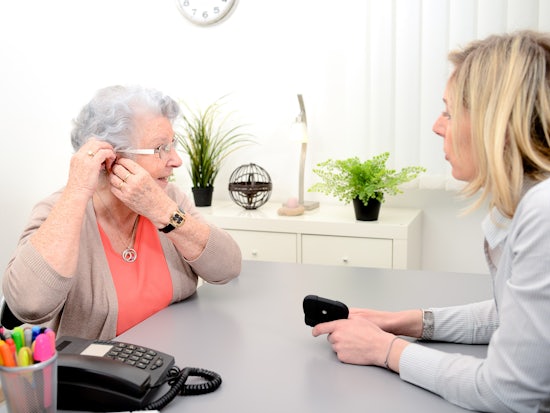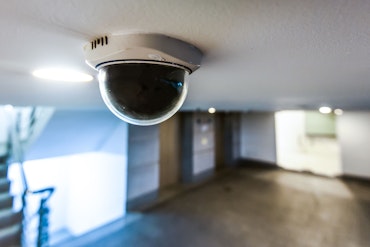Age related hearing loss leads to clinical communication breakdowns
A new study has found that older Australians health may be at risk as a result of poor hearing within a clinical setting.

The top reason for elderly patients to mishear a medical professional is general mishearing (Source: Shutterstock)
The study, published by JAMA Otolaryngology – Head & Neck Surgery reports that it is ‘not uncommon for older adults to report mishearing a physician or nurse in primary care or hospital setting’ and that the prevalence of medical error is higher among older patients, with failures in clinical communication considered to be the leading cause of medical errors.
Principal audiologist Adults with Australian Hearing, Emma Scanlan says that the results of the study don’t really surprise her.
“As we get older, we lose the ability to understand speech as well as we used to, especially in difficult situations,” she explains.
“So in an appointment, if there is background noise or the physician is not facing the patient, or is typing their responses into the computer, this can make the clarity of the speech difficult.
“The patient can then hear that something is being said but may not understand exactly what it is.
“In situations like this we tend to fill in the gaps and try to make sense of what we do hear.
“We don’t always do this correctly and that results in misunderstanding and miscommunication.”
The study also referred to one conducted previously which reported that improved communication between the medical teams and families could have prevented 36 percent of medical errors.
Among the results from the recent study, it was reported that 43 of the 100 adults over 60 years reported having misheard a physician, nurse or both in a primary care or hospital setting. The reasons given include general mishearing, consultation content, physician-patient or nurse-patient communication breakdown, hospital setting and use of language.
Ms Scanlan says that to have a communication breakdown can result in negative consequences, but especially in a medical setting.
“Most people will try to cover up [that they have misheard] by simply nodding and smiling or avoiding answering any questions,” she says.
“A smaller number of people are more assertive with their communication and will ask for repeats or clarity.
“In the case of medical issues, and especially where informed consent is required, it is important that people are correctly understanding their options and treatment availability before agreeing to actions.
“Also if a patient mishears a physicians questions, they could completely misrepresent their condition and either report to have symptoms that they do not have, or misidentifying symptoms that they do have.
“This would make correct diagnosis of conditions that rely on self-reporting symptoms very difficult.”
While acknowledging the issue and risks associated with older people mishearing in clinical settings, Ms Scanlan adds that communication is a two-way system and that it is important for both parties to do their part to be successful.
“Patients who have difficulty hearing should do something about it and have their hearing checked,” she says.
“We know that most people wait 7-10 years before taking action on their hearing problems.
“By taking action more quickly, they can obtain assistance from a range of devices and strategies that can help communication breakdown.
“Physicians can also use tactics to help the patient with hearing loss to communicate more easily.
“These include facing the person when speaking to them, checking back with answers to make sure the patient has understood the question, making sure there is good lighting in offices and encouraging their patients to use any hearing devices that they have during the appointment.”
If you have concerns about your hearing, find out more information about available services or book a hearing check at https://www.hearing.com.au/











![The new Aged Care Act exposure draft is slated for release in December of 2023, but advocates hope to see it rolled out on January 1, 2024. [Source: Shutterstock]](https://agedcareguide-assets.imgix.net/news/articles/wp/agedcareact__0811.jpg?fm=pjpg&w=520&format=auto&q=65)












Comments